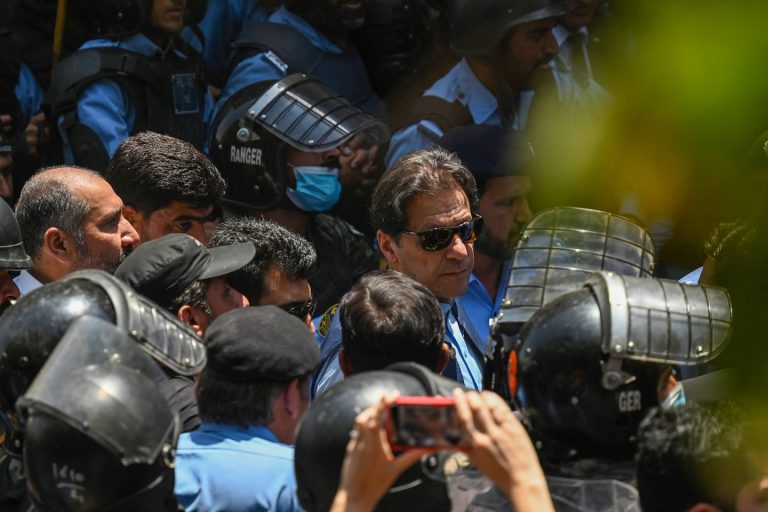According to Pakistani authorities, the timing of the surprise prison sentences, which came just over a week before the country's general elections on February 8, is coincidental.
But Khan's party, the Pakistan Tehreek-e-Insaf (PTI), and allies of the still popular former leader, say Wednesday's prison sentence proves the next election is unlikely to be fair.
“It sends a very clear message,” said Hassan Askari Rizvi, a political analyst. “PTI will not be allowed to come to power again.”
In addition to the prison terms, this week's rulings imposed a lengthy ban on Khan being allowed to hold public office. The odds are close to zero that the former leader will be allowed to run in next week's elections, despite pending appeals. While other PTI politicians are allowed to campaign as independent candidates, some are expected to switch allegiances to parties that will face less scrutiny.
Wednesday's case centered around accusations that Khan and his wife, Bushra Bibi, received official gifts from foreign dignitaries. The agency said in a statement that Khan's wife was also sentenced to 14 years in prison on Wednesday and surrendered herself. Among the items Khan and his wife were accused of improperly keeping were Rolex watches, perfumes, earrings and other jewelry.
The case on Tuesday centered on Khan publishing details of a secret diplomatic cable that the former prime minister said proved the United States was behind efforts to oust him in early 2022.
Khan is not the first former Pakistani leader to be buried under a wave of lawsuits and have his party slowly dismantled. Pakistan has a long history of former prime ministers who seem to have fallen into the trap of condemning and imprisoning the country's powerful military.
Many of them, including the most likely next prime minister, Nawaz Sharif, have been able to return to the political arena after mending relations with the ruling establishment.
During his third term as prime minister, in 2017, Sharif was forced to step down amid corruption allegations, paving the way for Khan, a former cricket star, to take power the following year on an anti-corruption platform. Initially, it was widely seen as being supported by the military.
But as prime minister, Khan has clashed with the military leadership over candidates for key positions in the military and allegations that his government has failed to address inflation and high debt. Khan's criticisms of Pakistan's top generals have been unusually vocal and frequent, and they continued after Parliament ousted him in April 2022, straining relations to an extent rarely seen in recent decades.
The stakes for whoever leads Pakistan's next government are higher now than they were when Khan was ousted. Economic growth has been slow and inflation has risen further, while relations with neighboring countries have been strained amid unrest in the Middle East and escalating armed attacks in West Pakistan.
While Khan now faces similar charges as Sharif did at the time, the added complication for Pakistan's next leader is that Khan still enjoys deep support across the country, judging by the rallies he held last year.
Sohail Warraich, a Pakistani political scientist, said the wave of lawsuits involving Khan is not surprising in a country that has long been a “hybrid state,” where civilian and military leaders share power.
A clear signal that Khan's party will not be allowed to regain power is likely to sway swing voters who “normally move toward the likely winning party,” Warraich said. But he warned that the frustration felt by Khan's allies could strengthen their resolve. Instead of calming tensions, the vote on February 8 could exacerbate them.
Khan's party said, in a statement on Wednesday, that it viewed the court's decisions this week as “an attempt to incite supporters to organize protests that pave the way to sabotage the electoral process.” When Khan was first arrested last May, Pakistani authorities accused his supporters of organizing riots across Pakistan and targeting powerful military installations in the country. Thousands of people were arrested.
Khan's party appealed to his supporters to refrain from gathering publicly in support of their leader on Wednesday, saying it did not want to give the Pakistani establishment an excuse to repress them further. The party said that the police surrounded the party's central headquarters in the capital, Islamabad.
Pakistani authorities deny that they have imposed severe restrictions on the PTI's campaign in the upcoming elections, but have admitted to taking targeted measures by citing the risk of further violence and protests.
Nowak reported from Kabul.

